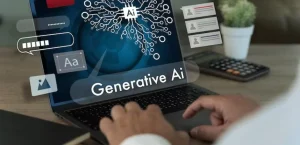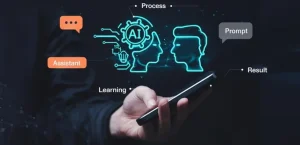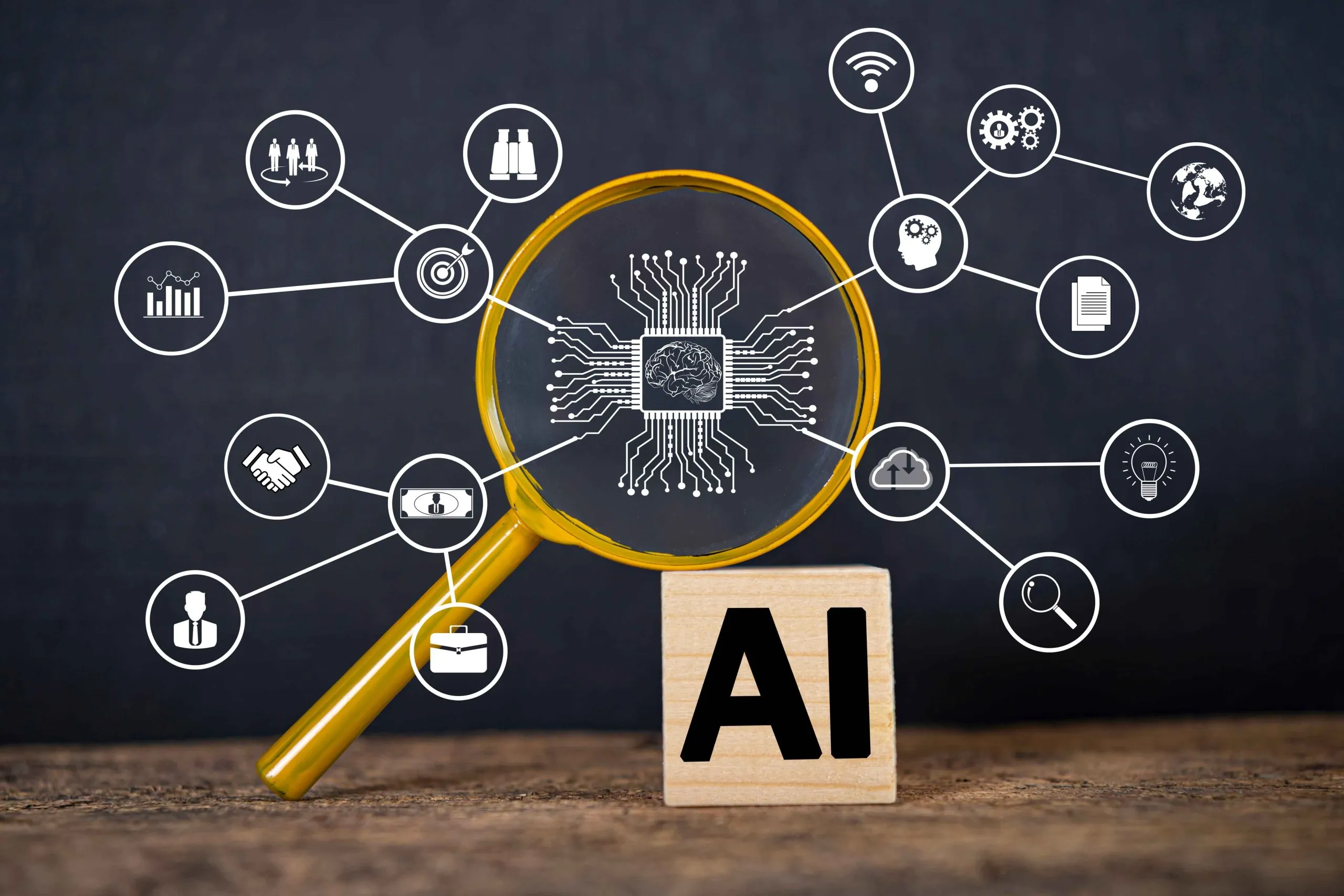Enable enterprise-scale intelligence with Generative AI strategies that accelerate innovation, improve efficiency, and unlock new business value.

Professional, reliable, and results-driven – they delivered exactly what we needed, on time and within budget.
- James
Translate generative AI potential into practical, enterprise-ready solutions aligned with strategic priorities.
Identify high-impact generative AI use cases with business value.
Select generative AI technologies aligned with performance and cost.
Adopt generative AI solutions within existing environments.
Ensure generative AI systems perform reliably at scale.
Ensure continued reliability and performance of generative AI solutions in production environments.
Enable teams to adopt and operate generative AI solutions.
We help leaders move beyond pilots to production-grade generative AI delivering ROI.

Generative AI consulting engagements support real-world adoption across industries and functions, moving from pilots to scalable, production-grade AI systems. As a Generative AI Consulting Company, initiatives focus on measurable impact, operational efficiency, and sustainable AI adoption.
Improve productivity and reduce repetitive work.
Streamline process execution and decision-making.
Enhance responsiveness and personalization.
Improve governance and oversight.
Enable secure and compliant AI adoption.
Support data-driven and compliant workflows.
Improve content and operational efficiency.
Accelerate internal productivity.
Transform generative AI initiatives into production-ready solutions that deliver measurable business impact.
Gain faster time-to-value through strategies designed to improve efficiency, reduce costs, and create scalable, AI-powered products aligned with enterprise goals.
We help you protect your data and scale responsibly with our trusted generative AI solutions.
Partnering with businesses in diverse sectors to unlock new avenues for growth and innovation.
The cost of software development depends on various factors such as service scope, sourcing model, technical design pattern, and software complexity.
We specialize in engineering custom software that’s both stable and secure, using a variety of tech tools.
Dive into bi-weekly sprints and rollouts aligned with project timelines.
Combined team tackles tasks, fulfilling user stories and sprint goals.
Daily Scrum check-ins to review progress and address blockers
Quality Engineers thoroughly test features to ensure seamless integration
The sprint backlog is continuously updated to stay aligned with goals.
Post-sprint reflections to refine strategies and enhance future sprints.
Choose how you want work to move - added hands, owned delivery, or your dedicated engineering hub. Each model is designed to remove friction, speed up progress, and keep accountability clear.
Expand your team. Maintain control
Add engineering capacity without changing how you deliver.
What it is:Billing: Time & Material, Retainer
Best for: Specific skill gaps, capacity crunches
How it works:You interview & select. Scale up/down with 30 days notice.
Request ProfilesCross-Functional Teams That Own Delivery
Dedicated teams accountable for predictable sprint outcomes.
What it is:Billing: Milestone-based, T&M with commitments, or Fixed-Cost
Best for:Products needing speed, cross-team coordination
How it works:We own sprint delivery metrics. Weekly demos.
Get a Pod ProposalYour Dedicated Engineering excellence Hub
Build your secure, scalable engineering hub, operated by us, owned by you.
What it is:Billing: Long-term retainer, BOT (Build–Operate–Transfer)
Best for:Enterprises needing sustained large-scale capacity, cost optimization
How it works:Multi-year partnerships. BOT (Build–Operate–Transfer) options.
Book a ConsultationGenerative AI refers to a class of artificial intelligence models and algorithms designed to generate new, original data that resembles and is similar to the data it was trained on.
These models can create new content by learning patterns and structures from existing datasets, such as images, text, audio, and more.
Generative AI technologies, like Generative Adversarial Networks (GANs), Variational Autoencoders (VAEs), and Recurrent Neural Networks (RNNs), are widely used in creative applications, content generation, data augmentation, and synthetic data creation.

The primary distinction between Generative AI and Conventional AI lies in their main objectives and capabilities:
Objective
Generative AI: The main goal of Generative AI is to produce new, original data that is similar to the training data, enabling the creation of synthetic content and generating novel outputs.
Conventional AI: Conventional AI aims to solve specific problems and make decisions based on existing data. It focuses on learning patterns from data to perform specific tasks, such as classification, regression, or decision-making.
Applications
Generative AI: Generative AI finds applications in creative fields, content generation, data augmentation, style transfer, and other areas where creating new content is essential.
Conventional AI: Conventional AI is widely used in various industries for tasks like image recognition, natural language processing, sentiment analysis, and fraud detection, focusing on making accurate predictions and decisions based on given data.
Output
Generative AI: The output of Generative AI is new and original data that did not exist in the training dataset, allowing for the generation of realistic and diverse content.
Conventional AI: The output of Conventional AI is typically a specific prediction, classification, or decision based on the input data, with a focus on accuracy and performance for predefined tasks.

Generative AI has a wide range of real-world applications that span various industries and domains. Some of the prominent real-world applications of Generative AI include:
These real-world applications demonstrate the versatility and potential impact of Generative AI across various industries, transforming how content is created, data is analyzed, and innovative solutions are developed.

Generative AI functions using advanced machine learning algorithms and models to generate new data closely resembling the patterns and characteristics of the training data it was exposed to. The key components and steps involved in the functioning of Generative AI are as follows:
Validation and Testing: After the generative model is trained, it undergoes validation and testing to ensure that the generated data meets the desired quality and usefulness for the intended application.

Generative AI offers numerous benefits across various industries and applications. Some of the key advantages of Generative AI include:
Generative AI’s ability to generate realistic and diverse data, content, and experiences offers transformative solutions to various industries, empowering businesses to be more creative, efficient, and innovative.

Generative AI leverages various cutting-edge technologies to achieve its capabilities. Some of the key technologies used in Generative AI include:
Integrating generative AI into existing systems and workflows requires careful planning and consideration. The following steps outline how generative AI can be effectively integrated:
By following these steps, generative AI can seamlessly integrate into existing systems and workflows, empowering organizations to leverage the transformative capabilities of this technology efficiently and effectively.

Generative AI research and development have made remarkable progress, but there are several current limitations and challenges that researchers and developers continue to face:
Despite these challenges, ongoing research efforts continuously address these limitations, pushing the boundaries of generative AI technology and opening up exciting possibilities for its real-world applications.
Ans. Generative AI is commonly applied to content generation, knowledge management, customer support, analytics assistance, and internal productivity workflows where automation and intelligence improve efficiency.
Ans. Timelines vary by complexity and integration needs. Pilot implementations may take 4–6 weeks, while enterprise-scale deployments typically range from 2–4 months.
Ans. Generative AI consulting services prioritize secure data handling, access controls, and compliance with regulations such as GDPR, CCPA, and HIPAA.
Ans. The potential return on investment (ROI) from Generative AI consulting is substantial. Businesses can streamline processes, enhance productivity, and develop innovative products by leveraging advanced AI techniques. This can lead to increased efficiency, reduced costs, improved customer experiences, and competitive advantages.
We are grateful for our clients’ trust in us, and we take great pride in delivering quality solutions that exceed their expectations. Here is what some of them have to say about us:

Co-founder, Miracle Choice

Executive Director

Director

Director
Trusted by Startups and Fortune 500 companies
We can handle projects of all complexities.
Startups to Fortune 500, we have worked with all.
Top 1% industry talent to ensure your digital success.



Whether you're building a SaaS product or scaling your engineering team, let’s align your roadmap with structured execution.